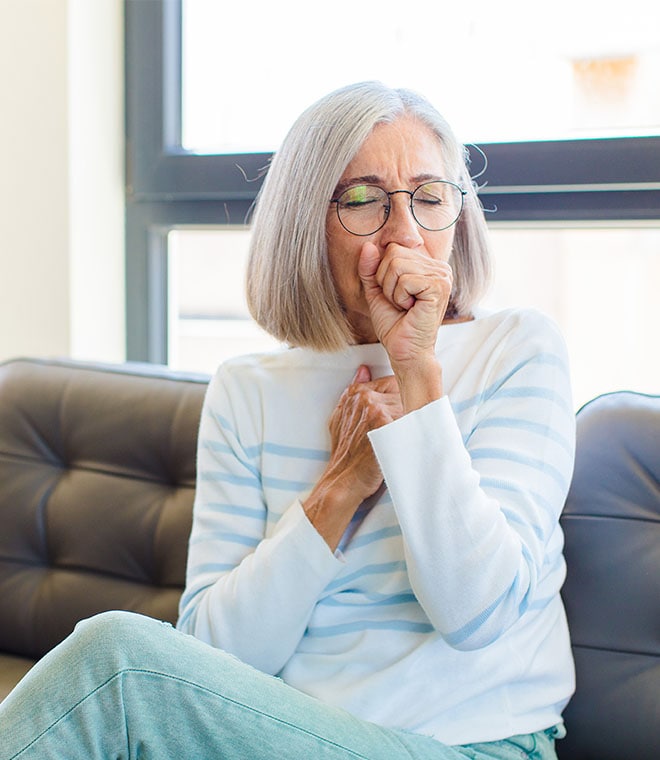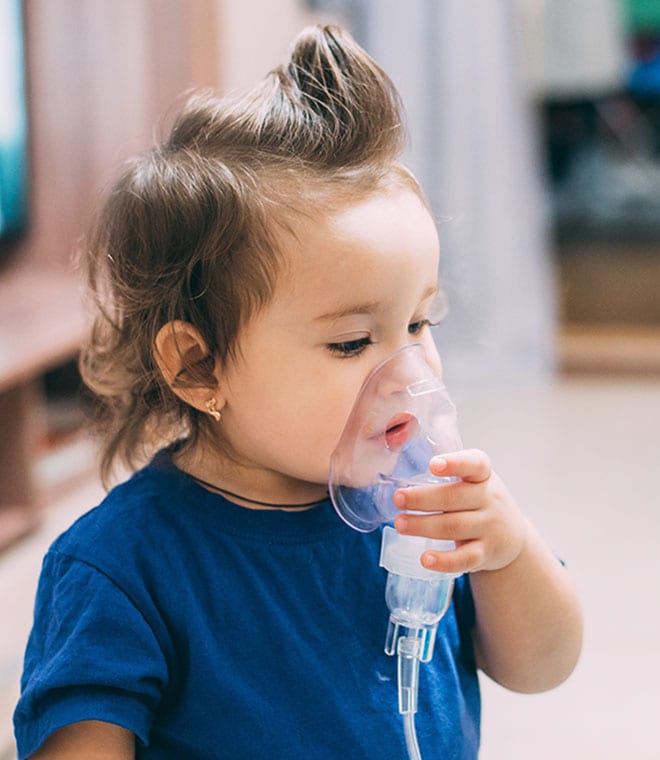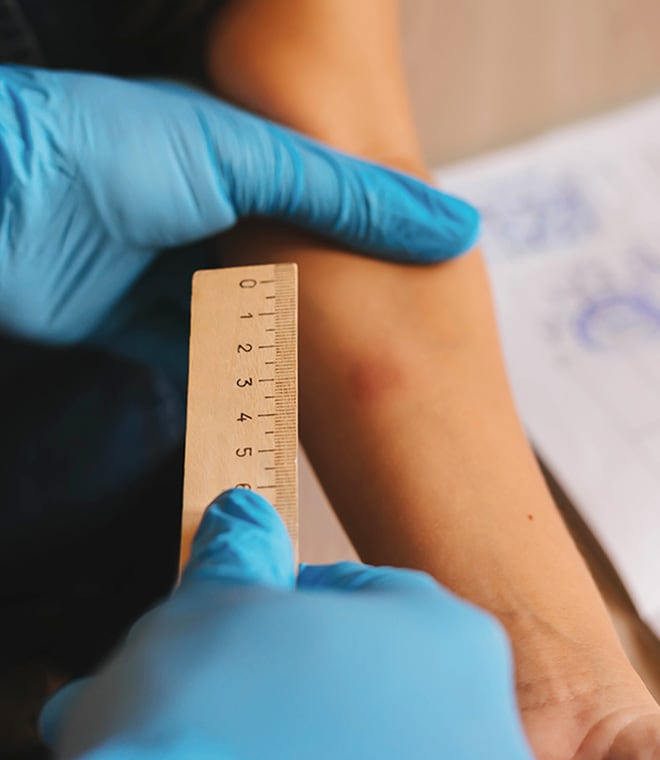Health
Whooping cough: The common term for pertussis
By Alyssia C. Dyett, PharmD Jan 23, 2024 • 8 min.
Pertussis, or whooping cough, is a highly contagious disease caused by bacteria called Bordetella pertussis. The disease is spread by uncovered coughs and sneezes, as well as being in close quarters with others who have the disease. These bacteria can get into your airways, attach to the tiny hairs that line them (cilia) and cause your lungs to become inflamed.
The inflammation leads to a cough with a high-pitched "whooping" sound upon inhalation and results in an inability to clear mucus that may accumulate in the airways. This abrupt increase in coughing, combined with an inability to keep up with regular breathing, worsens the inflamed airways. This disease can occur in both children and adults. Unfortunately, it is often most serious in babies under 2 months who are not old enough to be vaccinated, as well as young children whose immune systems are still developing.
Whooping cough symptoms
Early signs of whooping cough include a runny nose, low-grade fever, and a mild or occasional cough. Babies may not have a cough at all and, instead, may experience pauses in their breathing. After one to two weeks, you may begin to have coughing fits followed by a whooping sound when breathing in and possibly even vomiting. These symptoms may be mild at first, but they can progress and last up to 10 weeks, especially if left untreated.
What does whooping cough sound like?
Although sometimes unnoticeable if pertussis is mild, the whooping cough sound is similar to the sound of someone wheezing or gasping for air after a coughing fit.
Croup vs. whooping cough
It's important to understand that whooping cough is not the same as croup. Although the symptoms may seem similar in younger patients, croup and whooping cough are quite different. The cough of the croup is characterized by more of a barking cough and audible breathing, referred to as stridor. Croup is usually caused by a viral infection. It is not caused by bacteria like pertussis, and it cannot be treated with antibiotics. There is also no vaccine against croup, although researchers are working diligently to create one to protect against this viral infection.
Is whooping cough contagious?
Yes, whooping cough is highly contagious, which is why it’s important to wash your hands regularly and keep sick children at home from school and day care.
Prevention and protection
Vaccination is one of the best and most effective ways to prevent you and your loved ones from contracting pertussis. The vaccines for whooping cough contain acellular pertussis, which is made from inactivated components of the Bordetella pertussis bacteria. The whooping cough vaccines also have additional inactivated components that protect against the diseases of diphtheria (D) and tetanus (Td).
There are also other ways you can help decrease the risk of getting or spreading whooping cough. These include:
- Washing your hands with soap and water for at least 20 seconds
- Covering your coughs and sneezes with your upper arm, in your elbow or with a tissue
- Avoiding close contact with others who are sick
- Staying home when you are sick or keeping sick children at home
- Cleaning and disinfecting high-touch items, such as door handles and shared living areas
- Wearing a mask to help decrease the spread of respiratory illness
Immunization schedule and missed doses for infants and children and adolescents
It is recommended that children ages 2 months to 6 years receive the five doses of the DTaP vaccine (diphtheria, tetanus and acellular pertussis). For optimal immunity, DTaP is given at 2 months, 4 months and 6 months, one between 15 and 18 months, and one between 4 and 6 years, as well as one dose of Tdap (tetanus, diphtheria and acellular pertussis) between 11 and 12 years.
If your child misses any doses during the five-dose series of DTaP between 2 months to 6 years of age, they may receive the Tdap vaccine as early as age 7 to catch up on their vaccinations. However, the full series administered at the appropriate times is highly recommended to ensure that your child is fully vaccinated to decrease their risk of whooping cough.
Whooping cough in adults
Since adults are often the source of infection and babies are at the highest risk for pertussis due to being unvaccinated or not having finished the vaccine series yet, it is important for pregnant women to receive the Tdap vaccine with every pregnancy, preferably between 27 and 36 weeks.
All adults should receive the Tdap vaccine at least once. This is especially important for adult family members, such as fathers, grandparents, and aunts or uncles who will be in close contact with a newborn.
Where can I get a whooping cough shot?
There are more places than ever to get your whooping cough vaccination. Pharmacies have become an easy and convenient option to get your whooping cough vaccine. At Walgreens, we offer whooping cough vaccinations as well as other vaccinations whenever a pharmacist is on duty. Walk-ins are welcome, but if you'd prefer, you can make an appointment online. Find a location near you to ask about vaccine availability, or schedule an appointment online. Your doctor's office, clinics and health departments may offer the vaccine, but you may need to make an appointment in advance.
What are the potential risks associated with the vaccine?
Pertussis vaccines (both DTaP and Tdap) can occasionally have minor side effects. These can include mild to moderate pain and swelling where the injection was given, fever, tiredness or headache. Although it is not very common, some people can experience an allergic reaction. Vaccinations, just like any medication, can cause allergic reactions. The symptoms can be mild or more serious. In rare cases, a severe reaction known as anaphylaxis can occur, which requires immediate medical attention. If you experience any side effects from a vaccine, please be sure to speak with your pharmacist or doctor to ensure your overall safety.
Whooping cough treatment options
If you or a loved one become ill with whooping cough, antibiotics are available to treat this infection. They can be prescribed by your doctor. You should also avoid close contact with other people, especially babies and young children. Remember to practice good hand and cough hygiene. If you suspect that you or a loved one has whooping cough, it is important to see a doctor as soon as you can before symptoms worsen.
Clinically reviewed and updated by Julie McDaniel, MSN, RN, CRNI January 2024.
Sources:
- https://www.cdc.gov/pertussis/index.html
- https://www.cdc.gov/parainfluenza/index.html
- https://www.cdc.gov/vaccines/vpd/dtap-tdap-td/hcp/index.html
- https://www.cdc.gov/vaccines/schedules/index.html
- https://www.cdc.gov/vaccines/vac-gen/side-effects.htm#dtap
- https://www.merckmanuals.com/professional/infectious-diseases/gram-negative-bacilli/pertussis
- https://www.lung.org/blog/whooping-cough
- https://www.cdc.gov/pertussis/about/signs-symptoms.html
- https://my.clevelandclinic.org/health/diseases/8277-croup
- https://www.cdc.gov/pertussis/about/prevention/index.html
- https://www.merckmanuals.com/professional/infectious-diseases/immunization/diphtheria-tetanus-pertussis-vaccine
- https://www.cdc.gov/vaccines/hcp/acip-recs/vacc-specific/dtap.html
- https://www.acog.org/programs/immunization-for-women/physician-tools/tetanus-diphtheria-and-pertussis-faqs-for-providers
- https://www.cdc.gov/infectioncontrol/projectfirstline/healthcare/respiratory-virus-prevention.html



